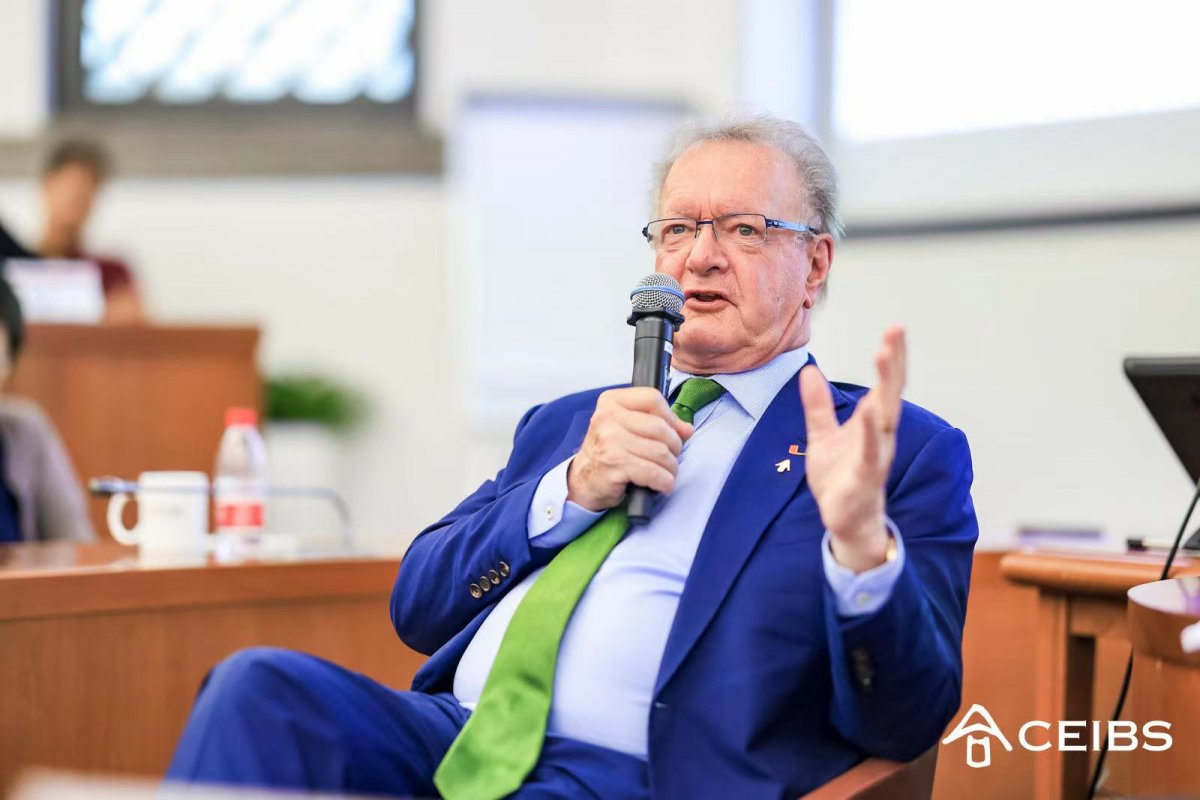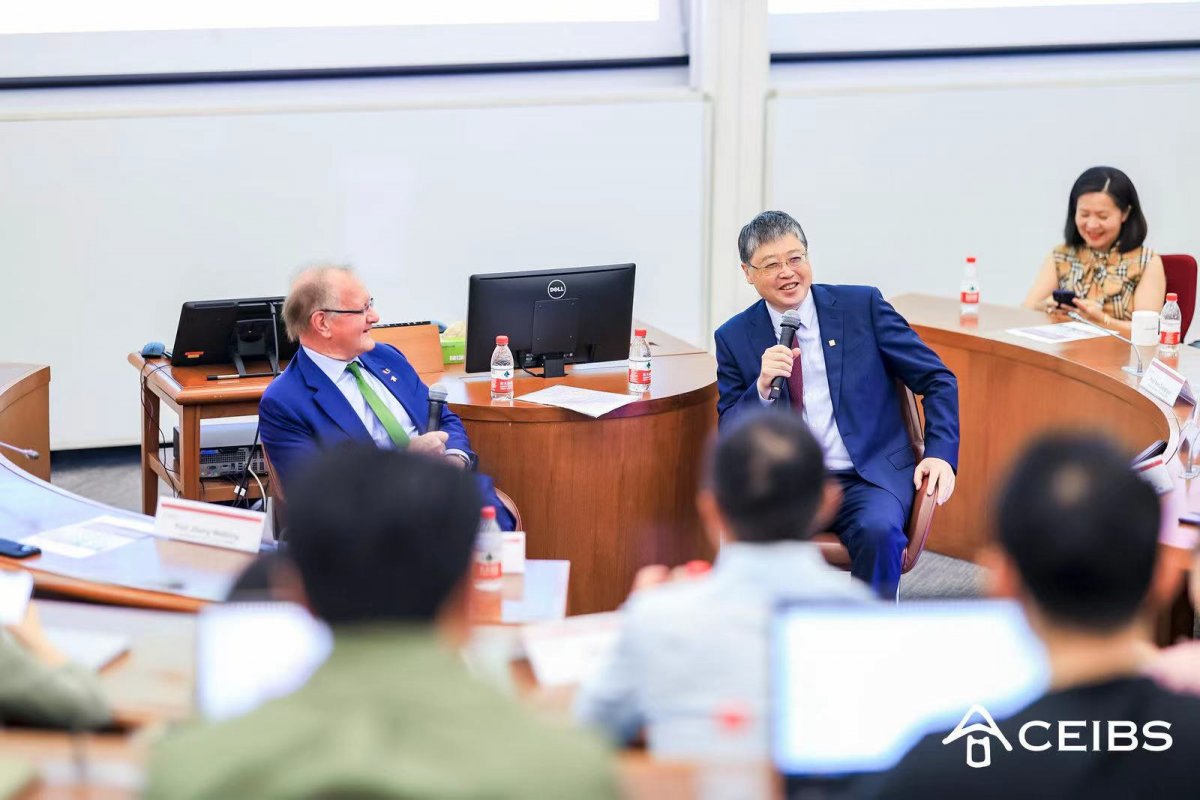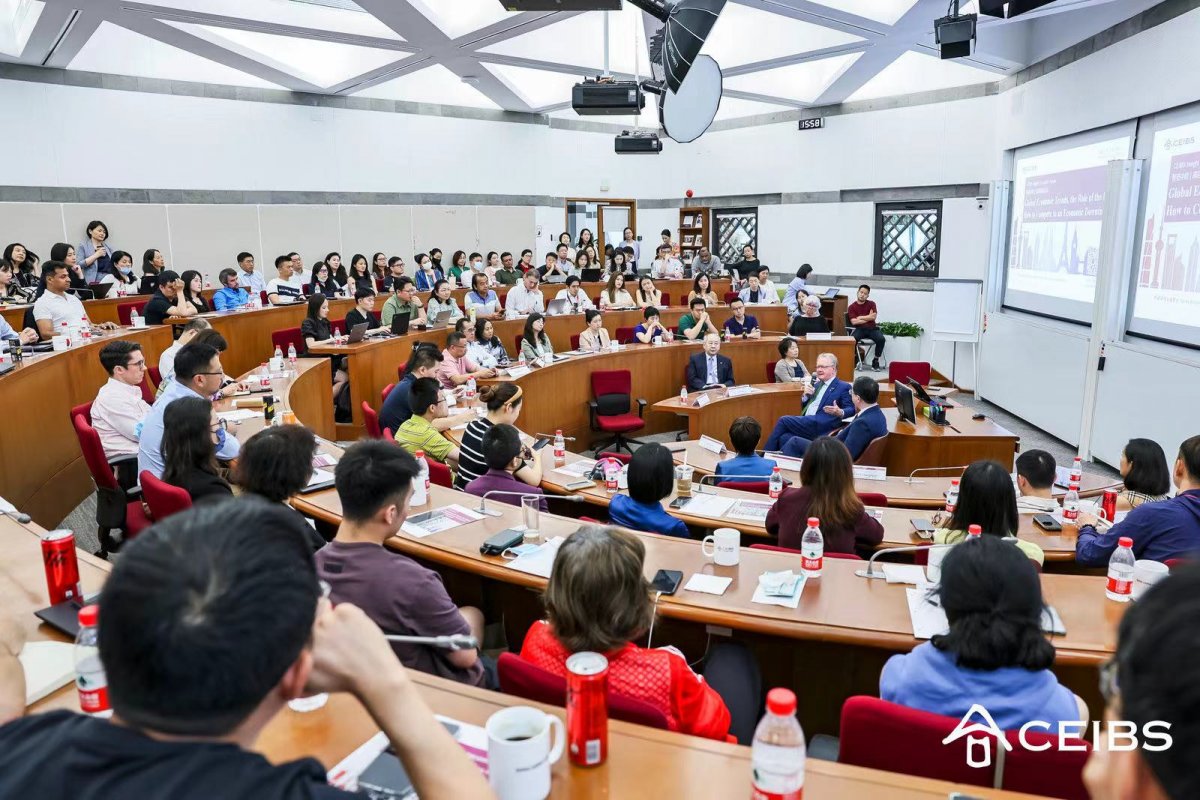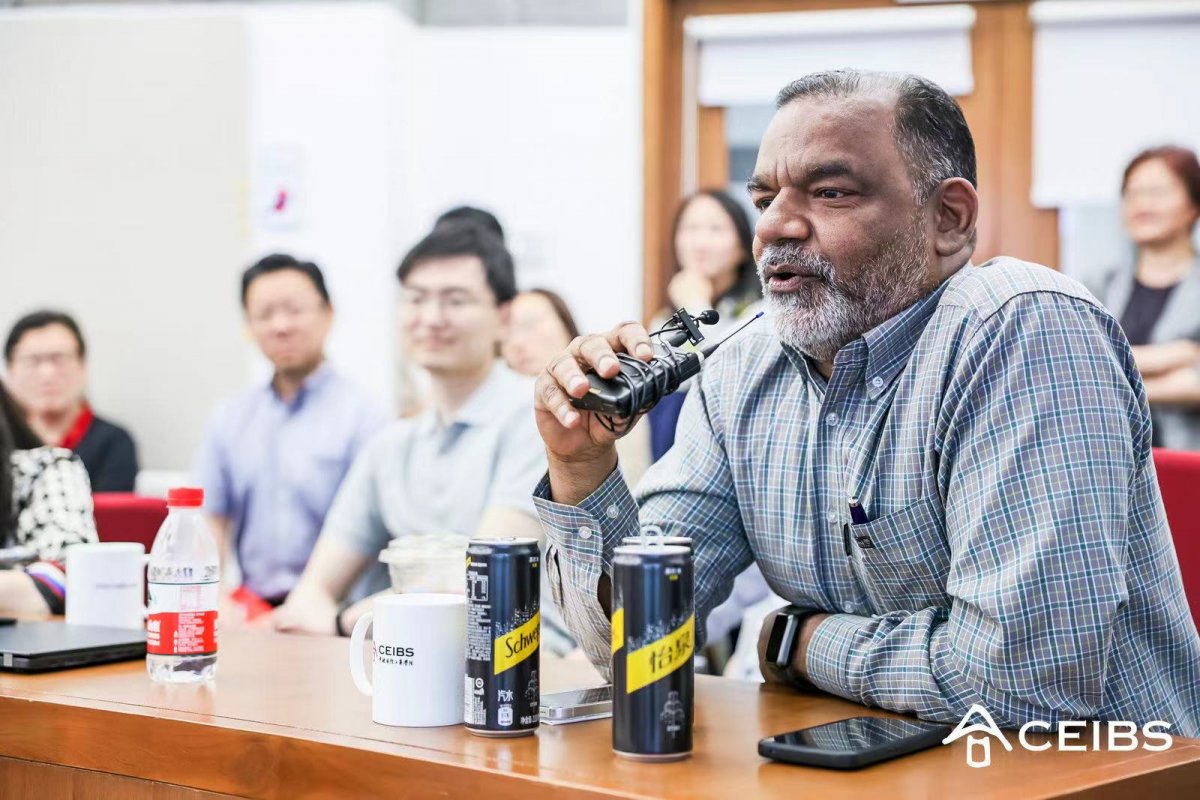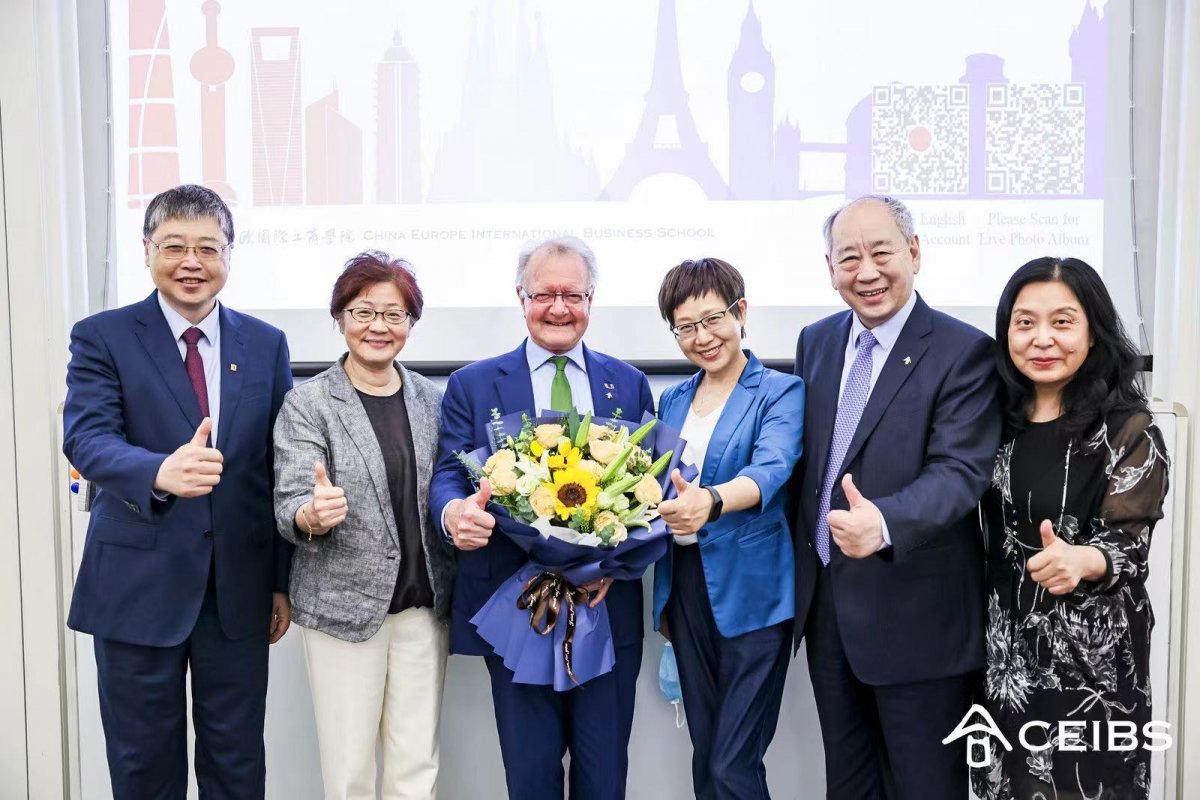Riding out the storm: How to advance the China-US partnership for a better future
June 12, 2023, Shanghai – The ongoing rivalry between the US and China is perhaps the world’s most important and concerning developments, and one that affects practically every other nation on the planet. To better understand the nature of this relationship, CEIBS Professor of Economics and Finance Xu Bin hosted CEIBS Dean Emeritus and Harvard Professor John Quelch for a fireside chat at CEIBS Shanghai Campus today.
During the offline event, the two professors explored the most pertinent factors shaping the US-China relationship, while sharing some key insights into the role the US plays in the global economy and how it continues to thrive even in times of economic downturn.
Prof. Quelch began by broadly outlining the economic and political situation in the US. While technically not in recession, he said, the country remains gripped in an inflation crisis that may yet spill over into a housing crisis for much of America’s lower-income groups.
“Whenever the economy is in bad shape, politicians always try to find some outside force to blame, and China is a regular target for this kind of behaviour. The weird thing is that, if it weren’t for China, everything that US consumers buy would cost a lot more, [because of] the massive efficiency and productivity gains that China has brought to global manufacturing during the last 30 years,” Prof. Quelch said.
Therefore, dialogue is essential in building bilateral relationship, he went on. “Any problem, in any kind of relationship, always begins to be solved when the talking starts. Currently, there is very little talking between both sides and that’s extremely dangerous, particularly in the military context,” he explained.
Fortunately, there are signs of dialogue recommencing, evidenced by recent visits by US business leaders to China and by US Secretary of State Antony Blinken’s planned visit to Beijing. A thaw could be hugely beneficial to both nations in restoring clarity, confidence and a degree of predictability to the global economy, Prof. Quelch added.
Despite the political turmoil at home and in its international relations, Prof. Quelch further highlighted how the US’ propensity for innovation is the backbone of its economic powerbase with strong coordination between corporations, universities and government.
“One thing that the US does really well is to integrate great national investment in basic research, with corporate investment in development and the university as the third pillar of this triangle,” he noted.
“China has developed its top universities to fuel innovation. If China wants to be at the forefront of innovation, it shouldn’t let all of this talent necessarily migrate to other countries and stay in those other countries,” he continued.
Employment rates, flexibility of labour laws and general hiring practices are also sources of strength for the US, allowing for greater agility in key industrial sectors as the world realigns to the economic realities of a post-COVID world.
“The US currently enjoys low unemployment of around 3.7%, but almost 1% of the entire population basically dropped out of the workforce during the COVID period. This has cut unemployment but there’s also some areas of tightness where it’s harder to find the right people for the job. Ultimately, flexibility in the labour market is useful when companies or even whole sectors need to adapt to what’s happening globally,” Prof. Quelch said.
He also drew on the example of the recent Silicon Valley Bank bailout (and similar bailouts around that time) to highlight how the US can encounter alarmingly rapid economic disruption, but also stabilise the situation very quickly and use the situation to promote conditions for more sustainable growth.
“There is an entrepreneurial spirit in US banking that is unlike anywhere else in the world. Its community banks are crucial growth drivers for SMEs, based on their in-depth knowledge of their local market. Meanwhile, the likes of SVB pursue ambitious growth strategies that, sadly, did not work out in this case. However, the government will doubtless, through legislation, reinstate tighter regulations on liquidity, better stress testing for banks and manage their risk appetite,” he said.
In closing, Prof. Quelch reflected on the new normal of China-US relations against the changing global geopolitical landscape.
“If the US has a soft landing economically and if Chinese consumer confidence holds up and the spending pattern is not too far off delivering 5% growth this year – in other words, that the world can essentially get through this threat of recession successfully – then we’re likely to see more of an opportunity to open up dialogue and a return to more normal collaborative approaches,” he concluded.







